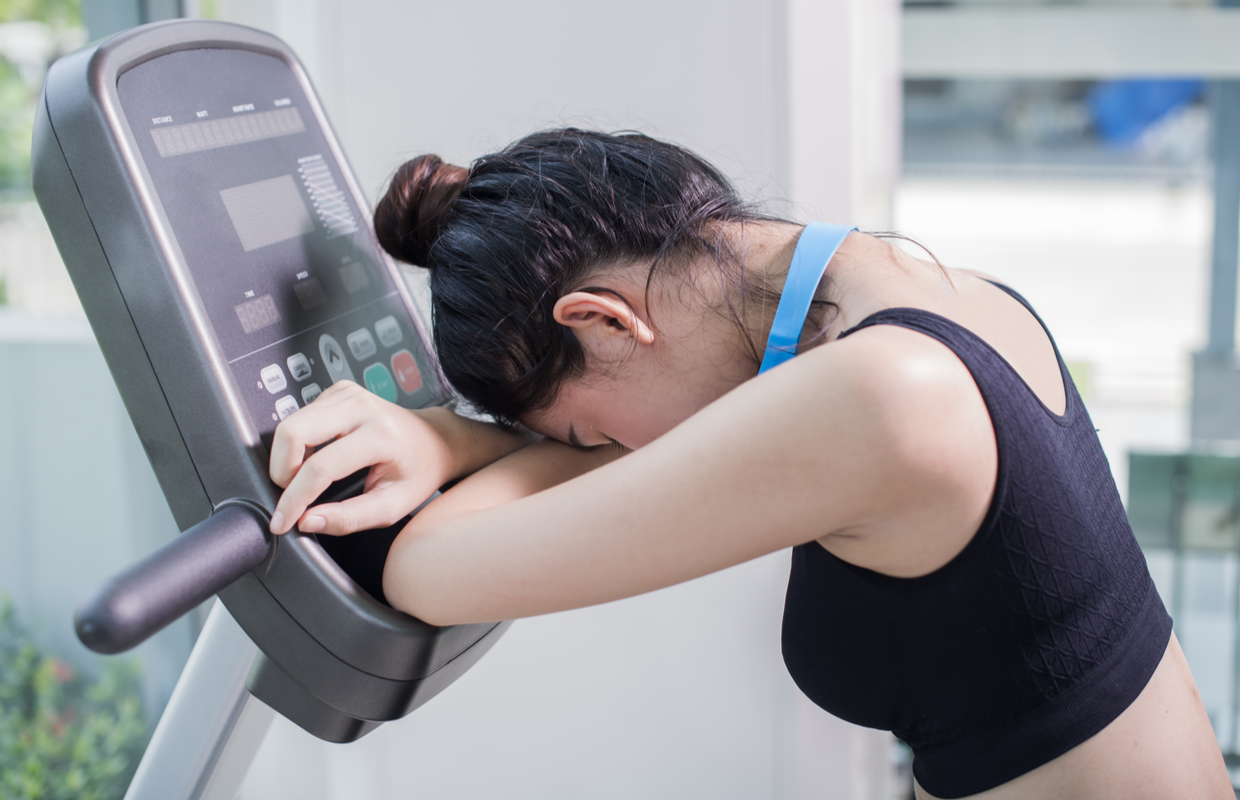David Wiener, training specialist at AI-based fitness and lifestyle coaching app Freeletics, explains how exercise can help with stress relief, but also reveals how to ensure you don’t overdo it and put your body under more stress by raising your cortisol levels…
We’re frequently told that exercise is hugely beneficial for both our physical and mental well-being – but it’s important to remember you can have too much of a good thing. While you might logically think that the more exercise you do, the greater the endorphin hit and stress relief benefits – however, according to the fitness experts, over-exercising can have the opposite effect by triggering your body’s stress response and raising your cortisol levels.
Find the correct balance and learn how to exercise effectively for stress relief with these expert tips…
Is exercise effective for stress relief?
‘Any form of physical activity is an amazing way to relieve stress,’ David explains. ‘Physical activity not only boosts our bodies ability to use oxygen but it can also improve blood flow. As you probably already know, exercise releases feel good hormones such as endorphins and serotonin into the brain.
‘Furthermore, exercise can also provide you with a distraction, taking your mind off work stresses, daily tasks and other issues you may be experiencing. While it doesn’t directly problem solve, exercise can provide clarity and allow for a more rational mindset.
‘While some people experience immediate euphoria after exercising, others can feel it over a longer period of time. Benefits of exercises (mental and physical) is built up by sticking to a consistent routine,’ David adds.

Can exercise increase your cortisol levels?
While exercise is a great tool for stress relief, over-exercising can have the opposite effect. ‘The hormone cortisol, otherwise known as the stress hormone, has been shown to increase if you over exercise and over strain your body, David explains. ‘Stress is often linked to a mental process; however, we tend to disregard the effect it can have on our body physically.
‘Exercising too much, or not performing stretches or cooldowns when you do exercise can cause a number of physical strains on our muscles, including tears or exercising too quickly after an injury.
But what counts as over-exercising? ‘Performing high intensity exercise for over 60 minutes a day can be shown to affect blood levels and neurotransmitters that can lead to feelings of stress, depression and chronic fatigue,’ David tells us. ‘So, stick to between around 30 – 60 minutes of exercise 5 times a week to get the benefits you need and allow your body to recover.
Will exercising every day make me more stressed?
Right about now, you might be questioning your daily fitness regime, but fear not: ‘It is perfectly fine to exercise for under an hour every day, depending on the workout you choose,’ David reassures us. ‘Some exercises like HIIT training can be more beneficial in shorter bursts. The healthy stress your body undergoes during HIIT sessions triggers autophagy, which put simply is the process your body goes through to clean out damaged cells and regenerate newer, healthier cells to help the body achieve optimum health, as well as being anti-ageing.
‘The NHS recommends exercising between 15-30 minutes every day, or 150 minutes per week. It is greatly beneficial to mix up your weekly routine, by switching between high intensity exercises like HIIT that can last 15-30 minutes and low intensity exercises such as long walks and cycling,’ David adds.
What are the best forms of exercise for stress relief?
‘While all types of exercise help with stress relief, aerobic exercise is considered most beneficial,’ David recommends. ‘Exercises such as biking, walking, jogging, running or swimming have an incredible effect on your body and mind.
‘Doing exercise outside can also help with stress relief. Fresh air does wonders for the mind. It’s way more enjoyable than exercising in a stuffy room. Plus, fresh oxygen stimulates the release of happiness hormones and boosts your immune system. A change of scenery also means your workouts never have to be boring or repetitive when you can choose different spots outside,’ David adds.

5 tips to exercise for stress relief without raising your cortisol levels
Reap the stress-relief benefits of exercise without raising your cortisol levels with these quick tips…
Exercise outdoors
Being outdoors is a great way to reduce your stress levels and feel more mindful. Try taking up an outdoor activity, like running, Bootcamp or hiking. Alternatively, you could join a group sport like football.
Try short and regular workouts
Exercising for over an hour at a time has been shown to increase your cortisol levels. Rather than planning out long training sessions, try to incorporate shorter, more regular workouts into your week. Added variety is a bonus!
Focus on aerobic exercises
Aerobic exercises (also known as cardio) are recognised as the best forms of exercise for stress relief. Get your heart pumping with running, walking, swimming or cycling!
Listen to your body
While it’s great to try your best and push yourself in a training session, it’s equally important to listen to your body and not overdo it. If you can feel yourself becoming fatigued, stressed or agitated, it might be time to call it a day. Rest is just as important as the training itself!
Always stretch and cool down
A key reason why people feel more stress after working out is because they neglect the cool down. Even though it might not feel that important after you just smashed your workout, a cool down is crucial to help you body and mind rest and repair after exercise. Be sure to stretch out your muscles to avoid injuries or soreness the next day.







